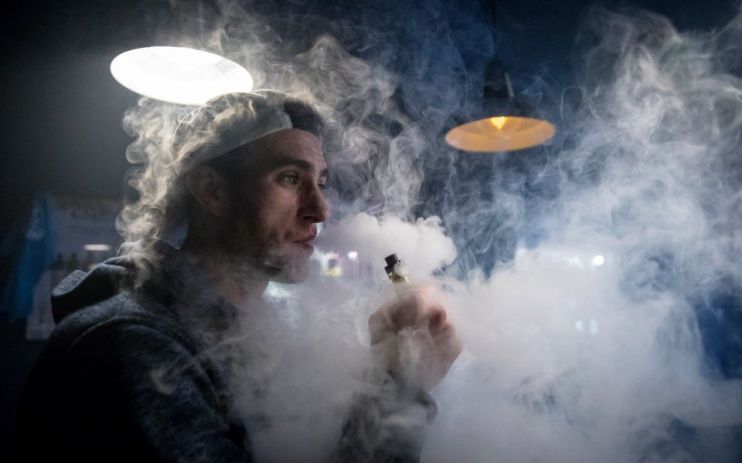Vaping saves lives, so let us resist the temptation to panic over e-cigarettes

Over recent weeks, there have been many headlines about several deaths and respiratory illnesses in the US linked to e-cigarettes.
First, it is absolutely right that public health authorities are investigating these events with the seriousness that they deserve.
However, for the 3.6m smokers in the UK who have successfully quit smoking completely by switching to vaping – or at least substantially reduced their cigarette use – as well as for the millions of smokers thinking about switching, it’s also important that we understand the true causes of these tragic incidents, rather than jump to inaccurate conclusions.
According to the US Food and Drug Administration, the majority of these incidents arose from people vaping products bought on the black market, which contained either tetrahydrocannabinol – also known as THC – or other oils not meant for vaping. So the knee-jerk reaction among various US state and federal bodies to either ban completely or severely restrict the availability of e-cigarettes, including flavoured e-liquids, is of concern.
The risks of smoking are well documented, and despite the long-term decline in smoking rates in the UK, there are still more than double the number of smokers than vapers. Last year in England alone, there were some 78,000 smoking-related deaths, with treatments for smoking-related illness costing the NHS approximately £2.4bn.
If we are serious about saving lives and reducing this public health burden, we must keep a level head, avoid hasty action like we are seeing across the Atlantic, and look closely at the facts when it comes to vaping.
There have been no proven reports of deaths linked to vaping in the UK. And unlike in the US, e-cigarettes here are tightly regulated for quality and safety: certain ingredients, including THC, are banned; there are limits on the amount of nicotine allowed in e-liquids; child-resistant packaging is required; and businesses must notify the Medicines and Healthcare products Regulatory Agency (MHRA) about all products they intend to sell before bringing them to market.
Consumers can report any problems they encounter with their e-cigarettes to the MHRA using the agency’s “yellow card” scheme. By contrast, there are no regulations like this in the US.
Vapers should also take comfort from the fact that the Royal College of Physicians, NHS, British Medical Association, Cancer Research UK, and Action on Smoking and Health all endorse vaping as a means to give up smoking.
Indeed, research suggests that e-cigarettes are almost twice as effective at helping smokers quit than traditional patches and gums. Perhaps most importantly, Public Health England last month reiterated its advice that vaping is at least 95 per cent less harmful than smoking and, while not completely risk free, states there is no situation where it would be better for your health to continue smoking rather than switching completely to vaping.
While I agree that we still need more evidence about the long-term impact of vaping, we shouldn’t let this get in the way of what we already know – vaping has helped millions of smokers to quit, and it is saving lives.
The House of Commons’ cross-party Science and Technology Select Committee drew the same conclusion in 2018 when it said “the risk for smokers of continuing to use conventional cigarettes is greater than the uncertainty over the long-term use of e-cigarettes”.
We must resist the calls for vaping to be banned or strangled to the point where smokers are unable to get the information and products which they need to successfully quit smoking.
Of course, consumer safety is paramount, but we should not set ourselves on a course where an entirely different set of circumstances in the US undermines, or even reverses, the hard-won positive health impacts which vaping has brought to the millions of now ex-smokers across the UK.
Main image credit: Getty